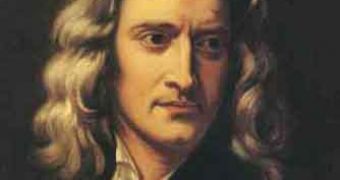We tend to regard the Western World as the cradle of science, but many new findings show the falsity of this concept. Now, it appears that a less famous school of scholars in southwest India is the place where one of the basic principles of modern mathematics was born, three centuries before Newton was credited with it: the "infinite series".
By 1350, "Kerala School" had made mathematical breakthrough classically, and wrongly, attributed to Sir Isaac Newton and Gottfried Leibnitz in the 1600's. The team from the Universities of Manchester and Exeter also has showed that the Kerala School had calculated the Pi series correctly to 17 decimal places.
Now it appears that the Indians passed their knowledge to Jesuit missionaries who came to India during the 15th century. Newton could have obtained the data from them. "The beginnings of modern maths is usually seen as a European achievement but the discoveries in medieval India between the 14th and 16th centuries have been ignored or forgotten. The brilliance of Newton's work at the end of the seventeenth century stands undiminished - especially when it came to the algorithms of calculus.", said Dr George Gheverghese Joseph from The University of Manchester.
"There were many reasons why the contribution of the Kerala school has not been acknowledged - a prime reason is neglect of scientific ideas emanating from the Non-European world - a legacy of European colonialism and beyond. But there is also little knowledge of the medieval form of the local language of Kerala, Malayalam, in which some of most seminal texts, such as the Yuktibhasa, from much of the documentation of this remarkable mathematics is written." he explained.
"But we've found evidence which goes far beyond that: for example, there was plenty of opportunity to collect the information as European Jesuits were present in the area at that time. They were learned with a strong background in maths and were well versed in the local languages."
"And there was strong motivation: Pope Gregory XIII set up a committee to look into modernizing the Julian calendar. Similarly there was a rising need for better navigational methods including keeping accurate time on voyages of exploration and large prizes were offered to mathematicians who specialized in astronomy. Kerala mathematicians were hugely skilled in this area."

 14 DAY TRIAL //
14 DAY TRIAL //